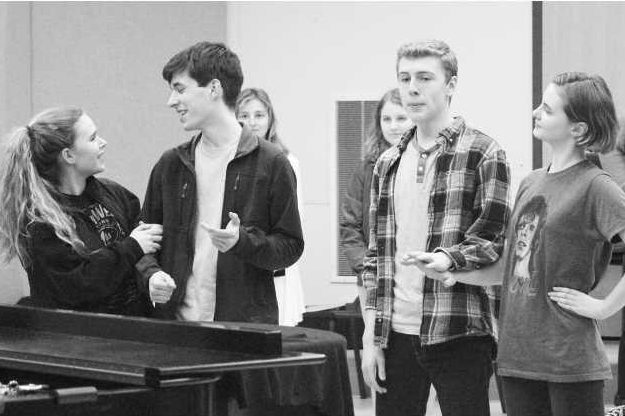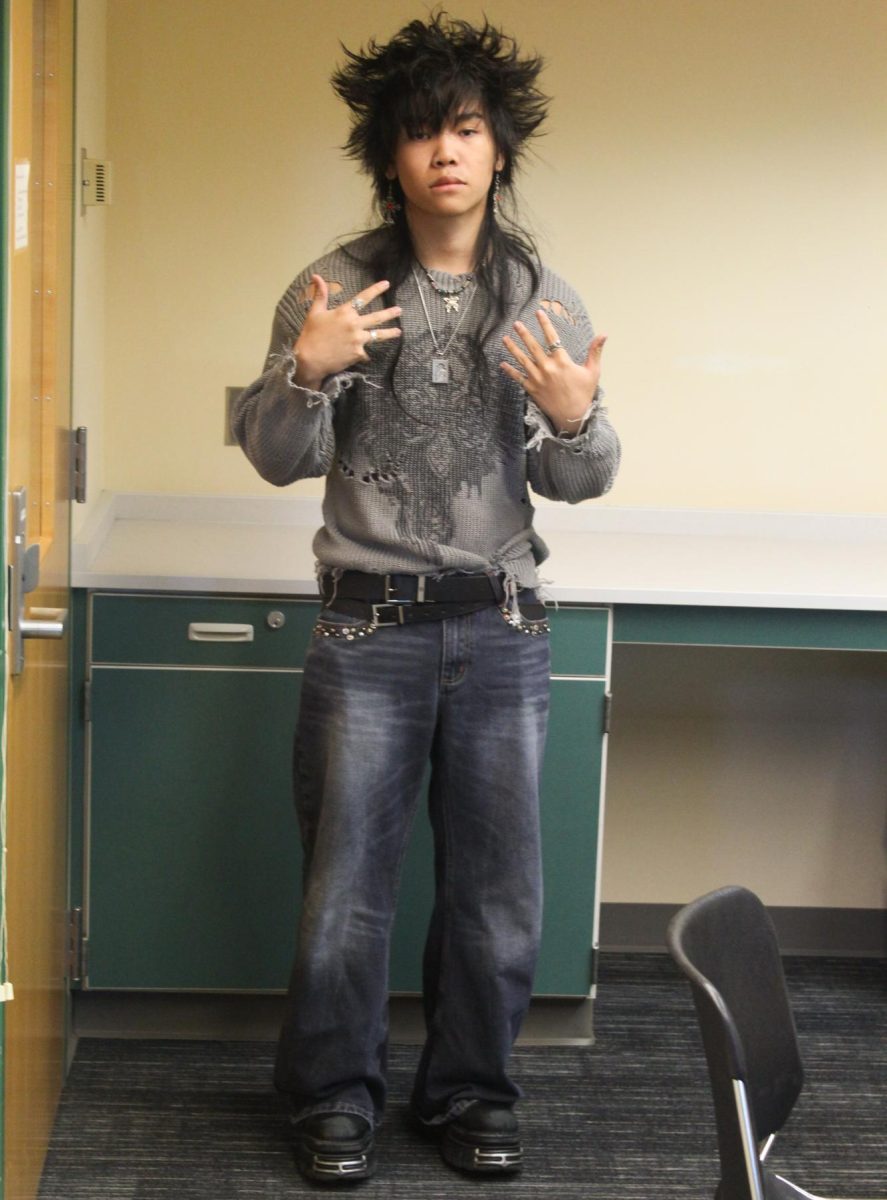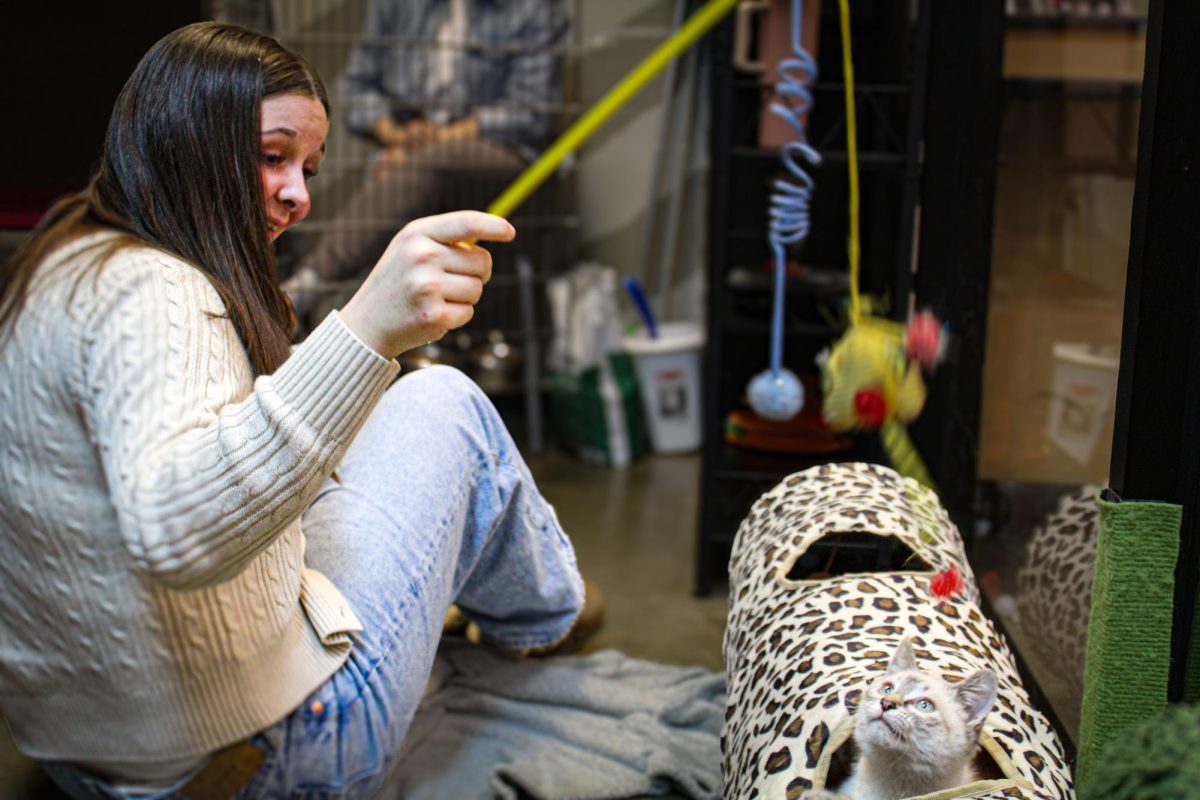Last month, the Valhalla Players put on a production of the 1930s musical “Anything Goes”, and both the orchestra and many supporting actors have been nominated by the 5th Avenue awards for outstanding performances and honorable mentions in the play.
Along with this acclaim, the show received some backlash from members of the cast and the student body for elements of its original content concerning racial stereotypes.
In the musical, two actors play Chinese Christian converts and towards the end of the show, another pair of actors impersonate the Chinese men in order to get out of prison and stop an ill-matched and unwanted wedding.
The musical is a comedy, and as such many jokes are made throughout the play, as one would expect. However, some of the jokes made about the Chinese converts were received controversially by the cast and crew, causing rumors to spread about the production.
“These [controversial] elements date back to its [the play’s] origin in 1934 when it was acceptable in society to make fun of different races,” member of the cast and junior Riley Hodgson said. “Since its debut, the script has been altered and rewritten to exclude the majority of the racist content from the original … this, [however], raises a question that directors and cast members have to ask: should this be changed out of respect or be kept to stay true to the writer’s intentions?”
While every member of the cast interviewed said that performing in the musical was a wonderful experience and that they would be interested in participating in theater again, viewpoints among the cast varied on the severity of the issue and how to best approach it.
In the original play, the converts talk in fake Chinese accents and broken English. Many of the actors said that this original version made them extremely uncomfortable and that its content was “simply not acceptable.” The accents and broken English included in some of the original versions of the play, however, were not included in the Valhalla Players’ version.
Director Gretchen Stewart said that ultimately, nothing major was changed about the play in order to remain respectful to the original creators but that “there was a way in which we stated things to be more palatable to some of our more sensitive audience members.”
This decision was made after the cast and administration discussed the intentions of the play and its content. Many of the cast said they overall had mixed emotions about the issue, but that they were trying to understand things from multiple perspectives in order to be as open minded as possible.
“[The musical] only has the intent to entertain and provide comedic relief … I don’t think that it should be condemned because that is not the intent or the meaning behind, it to be negative or condemning or targeting minorities,” a sophomore and member of the crew, who wished to remain anonymous said.
Some actors thought that since the play was a period comedy, the jokes should not be taken seriously, considering they did not have an offensive intention. Others, however, thought that the humor negatively showcased racial stereotypes as something to be laughed at rather than condemned.
“I really love my [Chinese] heritage and I think it’s a large part of who I am, but I don’t know if I really want to become this character that has been really simplified and has become really one-dimensional just for the purposes of comedy. But at the end, it’s comedy and not meant to be taken seriously so I am not sure how I am supposed to feel about it,” said one actor who also wished to remain anonymous.
A point that those interviewed in the cast all agreed on was that discussions are an important aspect of the process when dealing with plays that have controversial content.
“I think conversations amongst the cast are important because they address the issues and whether they need to be dealt with” junior and actor Erin Mackey said.
The actors said that while the viewpoint of an individual when regarding content is always personalized and subjective, it is important for both creators and audience alike to fully understand the intention of the content being viewed and consider how that content might be received by the audience.
“Musical theater is not supposed to make you comfortable; if something is making you uncomfortable, take a minute and ask yourself why it’s making you uncomfortable, and what could’ve caused it. That’s what theater’s all about. It’s a mirror of your own world,” Stewart said.
The cast also said that ultimately their goal is to entertain, and they are always trying to improve for themselves as performers and for their audience, which open discussion helps with.
“Talking about it is the only way to get things solved. I had many discussions with people of varying opinions on the situation. I believe that by taking away the accents and broken English, we kept the story intact without being exceedingly offensive,” Hodgson said. “Overall, it was a difficult situation and I am very impressed by the way members of the cast stood up and handled the whole thing. It is very mature for high schoolers to speak out and get things changed.”
















